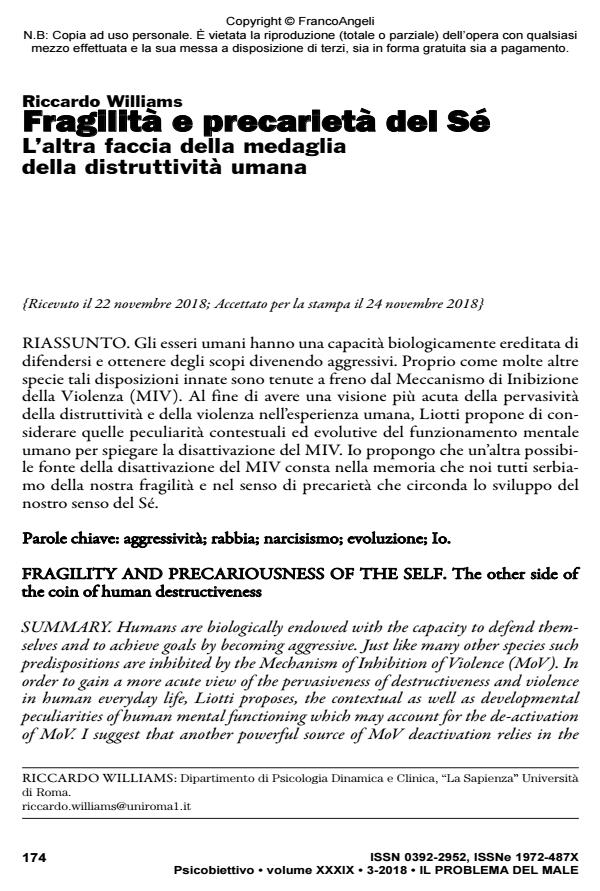Fragility and precariousness of the self. The other side of the coin of human destructiveness
Journal title PSICOBIETTIVO
Author/s Riccardo Williams
Publishing Year 2018 Issue 2018/3
Language Italian Pages 6 P. 174-179 File size 96 KB
DOI 10.3280/PSOB2018-003017
DOI is like a bar code for intellectual property: to have more infomation
click here
Below, you can see the article first page
If you want to buy this article in PDF format, you can do it, following the instructions to buy download credits

FrancoAngeli is member of Publishers International Linking Association, Inc (PILA), a not-for-profit association which run the CrossRef service enabling links to and from online scholarly content.
Humans are biologically endowed with the capacity to defend themselves and to achieve goals by becoming aggressive. Just like many other species such predispositions are inhibited by the Mechanism of Inhibition of Violence (MoV). In order to gain a more acute view of the pervasiveness of destructiveness and violence in human everyday life, Liotti proposes, the contextual as well as developmental peculiarities of human mental functioning which may account for the de-activation of MoV. I suggest that another powerful source of MoV deactivation relies in the memory of our own fragility and the sense of precariousness encompassing the development of our sense of self.
Keywords: Aggression; Anger; Narcissism; Evolution; Ego.
Riccardo Williams, Fragilità e precarietà del Sé L’altra faccia della medaglia della distruttività umana in "PSICOBIETTIVO" 3/2018, pp 174-179, DOI: 10.3280/PSOB2018-003017